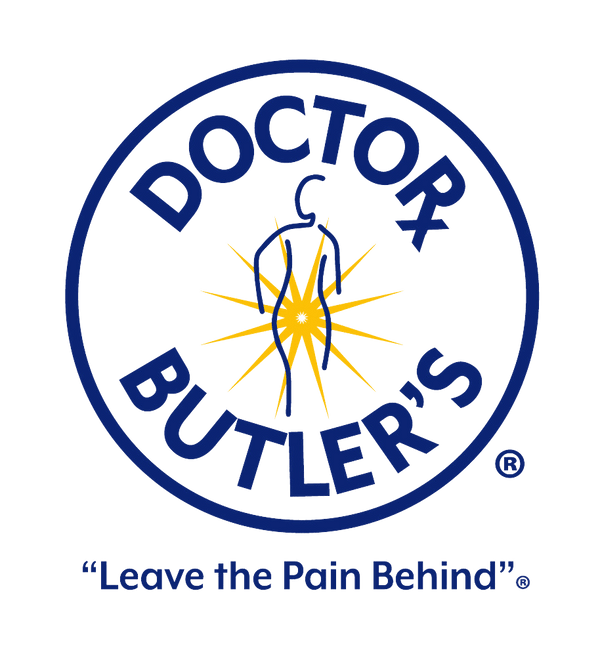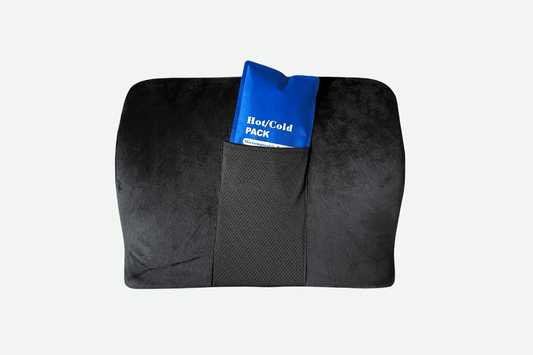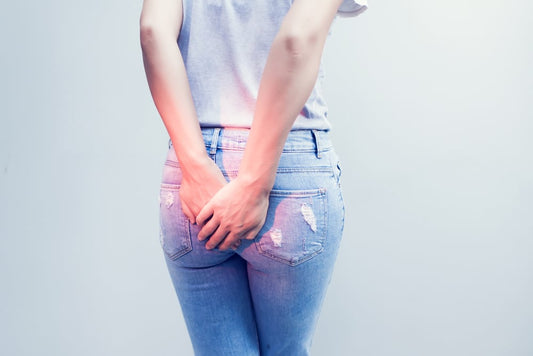IBS and Hemorrhoids: Coping with Irritable Bowel Syndrome
Robert Cutler, D.O., FAOCPrShare
Irritable bowel syndrome (IBS) can come to anyone at any time in life. When bloating and abdominal discomfort begin, you may take an antacid or two to ease the sensations. But when other symptoms such as hemorrhoids and constipation may suddenly occur, you’ll wonder if you’re experiencing more than just occasional discomfort. Before you take the next over-the-counter medicine, follow these tips that may help you find the relief you need when dealing with IBS and hemorrhoids.
What is irritable bowel syndrome and how do hemorrhoids factor in?
IBS is an unknown condition that causes constipation and diarrhea. This is often confused with such ailments as diverticulosis, thyroid, celiac, and other internal disorders. IBS will cause excessive bowel movements or constipation and can be extremely painful to cope with. While IBS symptoms differ from each individual, they will usually experience bloating, constipation or diarrhea or both, abdominal cramping or pain, and mucus in the stool. Hemorrhoids can be an ugly part IBS because of the strain that you put on your body during constipation. These symptoms can change over time and may worsen, depending on lifestyle. Women as young as 20 will experience the uncomfortable bouts of this disease but with the right diet and exercise regimen, you can ease the constant relief and gain the normalcy back.
DON’T: Spice it up
Whether you like it hot or not, keep those spicy peppers and hot sauce at bay for a while. In a recent study, these food items seem to worsen symptoms of IBS because of the natural capsaicin that immediately react to the nerve fibers in the stomach. Put a red light on the hot foods until your doctor gives you the go.
DO: Exercise
Your doctor should give you pointer on how to care for your hemorrhoids while on an exercise regimen. One of those major factors includes heavy lifting. So, how do you balance exercise and hemorrhoids? You shouldn’t go straight for the heavy weights in the room, especially if you’re new to exercise altogether, however, you can safely build your tolerance. Hiring a personal trainer to assist with your diet and exercise regimen will increase your knowledge of the appropriate and safe methods of training while coping with hemorrhoids. If even the slightest lifting of weight is causing pain, don’t lift at all. Your doctor should be aware of any changes with your diet and exercise and he will give your trainer a heads-up when it comes to your condition.
DON’T: Caffeine
Whether you enjoy your morning cup of Joe or a jolt of green tea energy, caffeine consumption may not be the best choice for your condition right now. Caffeine is a GI stimulant and can cause serious irritation for those with IBS. This unnecessary stimulation can enflame the hemorrhoids associated with more than frequent bowel movements, causing the irritation to worsen. Depending on the individual and the severity of the IBS, consult your doctor and specialist when concerned with caffeinated beverages.
DO: Up Your Vitamins
Healthy bacteria’s such as yogurt, kimchi, and kefir, provide an array of beneficial bacteria with live and active cultures to aid in healthy GI function. 22 digestive enzymes are found in the body and assist the breakdown of such crucial and beneficial vitamins such as B-12. Without these natural enzymes, the body cannot efficiently produce B12 and, in turn, lead B12 deficiency. Your doctor can check your B12 levels by performing a test to detect a deficiency in the body.
If you suspect an abnormal irritation, even after you’ve applied a recommend healing cream, consult your doctor and proctologist right away. Your specialist is able to determine if other actions need to take place to get you on the road to healing.


